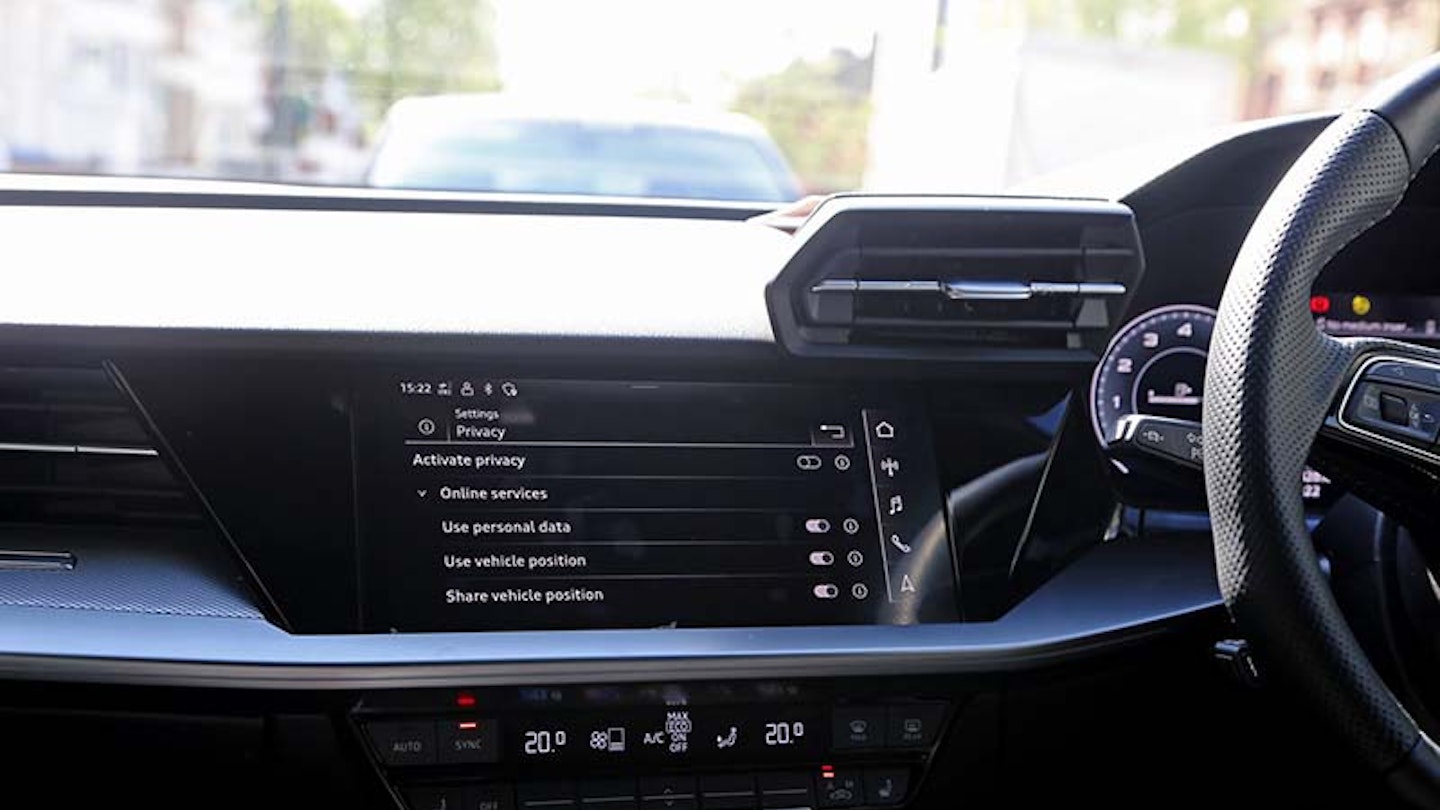So, you're driving along in your car, singing nursery rhymes at the top of your voice while your toddler giggles away on the back seat - but have you ever wondered if your car is listening in...
Well, while the secret of your singing talents may be safe, data such as where you drive could be being collected and stored by your car. Obviously the idea that your school run is being tracked is quite worrying - so exactly what is going on and how can we keep our families safe?
Exclusive research by Parkers.co.uk – the UK’s largest consumer car reviews and advice website – has revealed that three quarters of car drivers don’t want monitoring devices in their cars that could affect things like their insurance premiums. But only 19% of those polled that knew their car has a data agreement have read it.
The research from Parkers.co.uk comes off the back of aninvestigation into car companies’ use of behaviour data. This revealed that car companies share anonymised behavioural data about its customers, like where they go and their driving style, with third party data companies.
Just 10% of people polled knew their car had a data agreement in place already, and of them, only 19% of those people confessed to reading it.
A whopping 86% of people would not be happy for their car to share driving habit data with third-party companies.
Summary of Parkers investigation:
●The rise of connected services - why car manufacturers are keeping tabs on customers
●What your car knows about you - the information car manufacturers gather from you
●Your behavioural data and how it’s used - how manufacturers use the information
●The future - how data will be used in the future
What is a data agreement?
Broadly it means agreeing to how and where your data can be shared. If you use Google you’ll have signed one before.
New cars with connected services (an internet connection or an app) will have you sign up for agreement. Generally it involves agreeing to share data about you and the car with the manufacturer, and certain third-party companies.
What data does your car collect?
This depends on what car you have, as well as how old the car is. If you can operate functions on your car (like the locks or the heating) via an app on your phone, or the car has an inbuilt sat-nav it can most likely collect data on you.
Common data collection from cars include:
●Location information - like where you’ve been
●Driver behaviour data - such as how hard you brake
●Personal information - for instance, when you purchased your car
●Marketing information - for example, when your PCP agreement is due to end
What does the future hold?
A few car makers have add-ons you can buy from inside of the car. Expect this to become the norm in the future.
For instance, Skoda Octavia SE customers have the option of upgrading to auto-dip headlights for a one-off payment of £179. This includes unlimited access to the feature and is transferable from owner to owner. The software and hardware are installed into the vehicle, including the buttons needed to operate it, but it requires a further payment from inside the car to work.
Buying from behind the wheel looks set to become even more lucrative with autonomous cars.
The Polestar 2 was the first car to have Google’s Android OS natively plumbed into it. Polestar’s website mentions that thanks to Android Automotive OS being native, the Polestar 2 ‘will soon be a shop you can buy things in.’
Mark Aryaeenia, CEO of vehicle data company, Verex, told Parkers: ‘Car companies are thinking far ahead into the future. For instance, an autonomous car has a captive audience. Imagine the e-commerce opportunities it has.’
What does this mean?
A high percentage of people don’t want their data being collected. But a low number of people understand what data is being collected.
The research from Parkers shows that regular car buyers don’t like the idea of car manufacturers profiteering from their untapped behavioural data, and that they don’t like being kept tabs on.
It also shows that car manufacturers can share data because people agree to their data being shared - but 81% of people haven’t read the user agreements they sign up to.
Parkers.co.uk editor, Keith Adams, says: ‘it’s true that we’re agreeing to all manner of terms and conditions on a daily basis – I shudder to think what Google knows about me – but it comes as a surprise to see so few drivers are aware of what their cars knows about them. It suggests that carmakers need to make their data gathering more transparent, their agreements easier to read, and most importantly for the 75% of drivers who don’t want it, to opt out of.’
Read more popular articles
The best baby car mirrors to keep a close eye on your youngster
Mother&Baby and Parkers award the Ford Focus Best Small Family Car second year in a row
